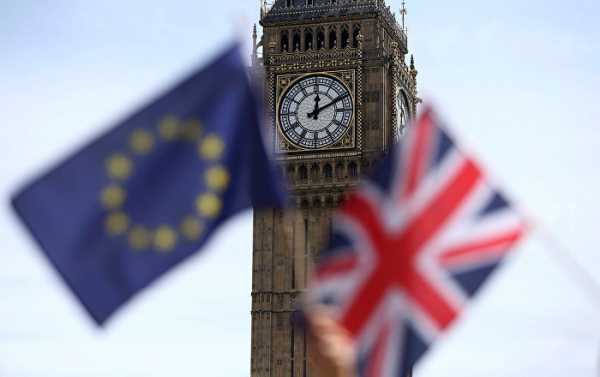
Home prices are declining across Britain due to the heightened economic uncertainty brought about by Brexit, and the unaffordability of residential properties, especially in the capital.
Kristian Rouz — The UK’s upcoming divorce from the EU appears to be gradually solving the affordability issue in London’s housing market. According to a new report, home prices in the British capital are set to post a second annual drop in 23 years, as overseas buyers are increasingly uncertain of their post-Brexit immigration status.
According to real estate think-tank Hometrack, London house prices are poised to fall by 0.1 percent this outgoing year, and drop an additional 2 percent in 2019. This would mark a second and third annual decline since 1995, and potentially boost the chances of home ownership for UK citizens.
A separate report from Rightmove found London’s average residential property asking price to have dropped 3.2 percent, or £9,719, in the October-December period, down to £297,527. In November alone, prices fell by 1.7 percent, and an additional 1.5 percent this month,
“These falls have been larger than usual, making this the largest fall over two months for six years, showing that there are more than just seasonal forces at play,” Miles Shipside, a director at Rightmove, said.
While Rightmove said London home prices rose 0.7 percent year-on-year in December, the data from Hometrack provides a more pessimistic picture. The think-tank said house prices in the British capital are tanking due to the gloomy long-term economic outlook.
Britain’s economic growth has been unstable, albeit solid, over the past couple of years, while Brexit risks have spooked foreign buyers and investors. Additionally, London’s housing market has been overvalued for years, and an average Londoner would have to spend 13.3 times their annual salary to afford a property.
Affordability, however, is becoming less of an issue. Back in 2016, Hometrack said average home price in London stood at 14 times the average annual salary. However, experts say there is still a long way to go until housing market in the British capital becomes more buyer-friendly.
“Recent house prices falls are doing little to materially change the affordability picture in London,” Richard Donnell of Hometrack said. “Our estimated fall in 2019 will bring the price to earnings ratio down to 12.8 time salaries — levels last seen in 2015 — but that will still be too high.”
For its part, Rightmove said London is not the only metropolitan area in the UK to suffer a decline in home values. The East Sussex city of Brighton and Hove, in addition to other parts of England, recorded significant drops in property prices, as the uncertainty brought about by Brexit persists and troubles buyers.
On the contrary, Wales and Scotland, along with several regions of England, from the Midlands to the North-West, posted increases in house prices, mainly due to the so-called ‘base effect’, as home prices in these regions have historically been lower.
Meanwhile, falling prices in London are yet to have a negative effect on market activity. The level of home transactions increased 2.5 percent last month to a three-year high, as people were actively buying and selling properties.
“Despite the current economic uncertainty, it’s encouraging to see that there is still some increase in transaction levels and that, whilst house price growth is relatively flat, it means for first time buyers, for example, the news remains positive,” Oliver Blake of Your Move said.
However, according to Hometrack’s forecast, overall home prices for the entire UK will rise by 2 percent next year due to low unemployment, the still-loose monetary conditions, and improved affordability in several regional submarkets.
Sourse: sputniknews.com






